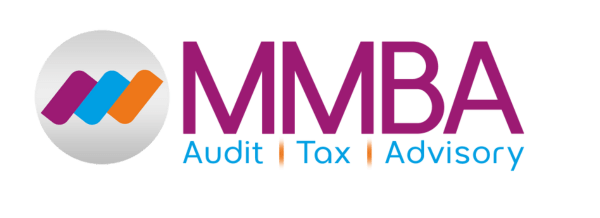Trust, Charities & Pension
MMBA has a widespread experience of guiding charities and individuals on their finances and savings.
Charity Accountants | Not for Profit Organisation Accounting
We have a wide range of skilled contacts to ensure you have independent adviser accustom to you and we work with them to deliver you with impartial advice. MMBA has a widespread experience of guiding charitable and not-for-profit organisations. This sector is a large part of our business and our professional team advises some of the best-known organisations in the region. Charities and not-for-profit organisations require specific legal, accounting and taxation regulations and the requirement for an expert team which understands the detailed necessities of this sector is high. As a specialist wealth management company, we provide retirement and pensions planning advice and support services including trusteeship, administration, consultancy and investment advice. We can help you with the provision of self-invested personal pension (SIPP) and small self-administered pension scheme (SSAS) arrangements – these are often central to life planning strategies. We make use of our wide range of professional contacts to ensure you have a suitable independent adviser and we work with them to provide you with impartial advice in areas such as:
- Pension schemes / Auto Enrolment
- Pension schemes / Auto Enrolment
- Critical illness cover
- Private medical insurance and care plans
- Individual savings accounts and
- Investments
- Retirement planning
How Charity Auditors Saved Nonprofits
To ensure the financial integrity and sustainability of nonprofit organisations, charity auditors can play a crucial role. They work on financial accountability, compliance with regulations, and operational efficiency. Their work can help these organisations maintain transparency, accountability, and trust among donors and stakeholders. Charity auditors have saved nonprofits by providing trust and credibility, strategic decision making, donor confidence, improved governance, long-term sustainability, and compliance with donor restrictions.

Maximise your Impact with MMBA’s Expert Charity Accountant
You can maximise the impact of your nonprofit organisation with the help of MMBA’s expert charity accountant by improving financial management and decision making. After hiring, MMBA’s expert charity accountant’s specialist services follow these important steps to achieve your goal.
- Make financial plans and regularise financial analysis
- Ensure proper grant management
- Work on cost efficiency and reduction
- Stay up to date with tax regulations and compliance
- Manage cash flow and independent examination
- Ensure strong financial governance reviews and educate your board members about financial matters
- Invest in financial anagement software and automation to measure and report impact of your programs
MMBA Expert Charity Auditor
An Expert charity auditor is an experienced professional who is highly qualified and specialises in auditing nonprofit organisations, charities or charitable organisations. Our MMBA’s expert charity auditor deeply understands the unique financial and regulatory requirements that apply to nonprofits and has the skills necessary to conduct thorough and meaningful audits within this context.

MMBA’s Guidelines for Building Trusts and Community Interest Companies
To create and maintain an organisation that prioritises social or community benefits, building Trusts and Community Interest Companies is important. A Trust is an arrangement whereby a person (the trustee) holds property as its nominal owner for the good of one or more beneficiaries. In contrast, a community interest company is a corporate structure designed for social enterprises or not for profit projects and is structured like a normal limited company.
MMBA’s guidelines for building trusts and establishing ommunity interest companies are to clearly define your social or community purpose, conduct a feasibility study, make a robust business plan, register as a CIC, establish governance structure, engage takeholders, work on transparent financial management, collaborate with partners, meet reporting requirement and continuously evolve.
The UK academies (academy schools) are state funded but require financial management and accounting services; our not for profit team can act as a sounding board for their work. Our clients include all types of charity, not for profit, or third sector organisations.

MMBA Charity Specialist Accountant:
Nonprofit or charitable organisation accountants or charity specialist accountants offer unique expertise and benefits designed specifically for the financial and regulatory requirements of your not for profit organisations. Our MMBA charity specialist accountants are expert in their field.
The nonprofit or charitable sector aims to create social impact rather than focusing on financial gain. The Charities Act, a law designed to register and regulate charities and collect charitable contributions, exists to serve this objective. Local charities have played a pivotal role in the UK in providing public services. Charity and assurance services are essential for maintaining public trust and confidence in the nonprofit sector. Charity and nonprofit organisations need to understand and comply with their legal and regulatory obligations; for this purpose, charity commission guidance is available (for England and Wales).
Not for profit organisations should work with Charity Specialist Accountants because they have:
- Knowledge of nonprofit accounting requirements and standards
- Understanding of regulatory compliance
- Knowledge of maximising tax benefits
- Expertise in fund accounting
- Idea of strong internal controls and governance structures
- Financial planning and strategy skills
- Expertise to achieve donor trust and transparency
- Understanding of capacity uilding and production of management accounts


Managing your Charity VAT with MMBA | Making your Charity Tax Efficient
Certain rules and regulations in the UK apply specifically to charitable organisations. For charities, it is essential to clearly understand both VAT and tax regulations that apply to their specific circumstances. Charitable organisations also receive some reliefs and exemptions to encourage their work and support their mission. These reliefs and exemptions depend on HMRC UK. Strategic use of available reliefs and exemptions and compliance with all rules and regulations, can significantly impact a charity’s financial position and ability to achieve its mission.
To effectively manage value added tax (VAT) for a charity, it is important to consider several key factors. They are to determine your VAT status and get registered if required, collect donations and claim VAT relief, increase commercial activities, collect VAT returns, seek professional advice, regularly review VAT positions, get trained and work on staff awareness and keep records.
To make your charity tax efficient, you have to manage your finances to minimise tax liabilities while maximising the resources available for your charitable activities. One has to consider several strategies for tax efficient charity management in the UK, and these are: register for harity tax relief, claim gift aid, se the small donations scheme, manage VAT efficiently, maximise tax effective giving, utilise business rate relief, regularly review financial practices, and consider trading subsidiaries.
MMBA’s charity specialist accountants are well versed in all these considerations. Their involvement in your charity’s financial matters can lead your business to achieve new horizons.
MMBA’s Trust, Charities & Pension Reserves and Knowledge Base
The MMBA Accountant offers a fantastic opportunity to stay updated with the most recent news and guidance


A Complete Guide to Gift Aid Tax Relief Scheme When You Donate to a Charity

Requirements and Exemptions Related to the Audit Threshold
Trustindex verifies that the original source of the review is Google. MMBA Accountants have been engaged as UK Law Solicitor’s independent auditors for the last three years. They are totally professional and yet friendly and approachable. They undertake a thorough audit and provide helpful feedback to ensure that our accounting processes remain compliant and suggest ways to make things easier for us. Their prompt and cost effective service has been very different from our previous experiences.Trustindex verifies that the original source of the review is Google. I have used MMBA twice now for my accounts and my self assessment. I have found them to be very professional, quick to respond to my emails and very efficient. The service they provide is value for money and good quality, I am happy with MMBA and will continue to use their service. Thank youTrustindex verifies that the original source of the review is Google. Excellent. A very personalized service. Always happy to answer any queries and no trouble contacting the team. Customer service is outstanding. I would recommend this firm to family and friends.Trustindex verifies that the original source of the review is Google. Excellent firm to deal with. They really take an interest in your questions and make sure they are answered properly.Trustindex verifies that the original source of the review is Google. Best service customer from last 10 yearsTrustindex verifies that the original source of the review is Google. The staff are very attentive and always keen to understand the problem and solve it professionally For my business knowing it is properly seen to is crucial and I always get this assurance from MmbaTrustindex verifies that the original source of the review is Google. I found MMBA very professional and personalised. They have looked after my company and personal Tax matters for last 3 yrs, very efficiently and in timely manner. They have dealt with all the correspondence from company house and HMRC in a profgessional manner. I have no hesitation in recommending them to anyone who want their Tax matters to be looked after properly.Trustindex verifies that the original source of the review is Google. Very thorough in their work and quick to respond to any calls or emails. A professional team who helped tremendously when getting my business off the ground and growing.Trustindex verifies that the original source of the review is Google. MMBA Accountants are a professional service accountancy firm that helped my business grow by providing excellent customer service and great industrial knowledge. Highly recommended. SA Capital Consulting
MMBA Charity Accountant FAQs
Does a charity need an Auditor?
A charity may or may not need an auditor depending upon the legal and regulatory requirements of the jurisdiction in which it operates, its source of funding, its financial activities, and its size.
What does a Charity Auditor do?
A charity auditor is responsible for examining and assessing charitable or nonprofit organisations’ financial records and activities.
Who can check Charity Accounts?
Charity accounts can be checked by charity regulators, charity trustees or board members, beneficiaries, he general public, donors and funding organisations, independent watchdog organisations, and independent auditors.
Is ICAS a Charity?
The institute of chartered accountants of Scotland is not a charity. It’s a professional membership body and regulatory authority for chartered accountants in Scotland.
When should Charity Accounts be audited?
When the charity accounts should be audited depends upon the specific legal and regulatory requirements in the jurisdiction where the charity operates and its financial circumstances.
How do I account for UK Charity donations?
To account for charity donations in the UK, the accountant follows some steps, including recording donations, bank reconciliation, gift aid declarations, gift aid reclaim, segregation of funds, restricted and designated funds, transparency and financial reporting, compliance with SORP, regular nternal and external audits, adherence to regulatory requirements, and documentation and retention.





